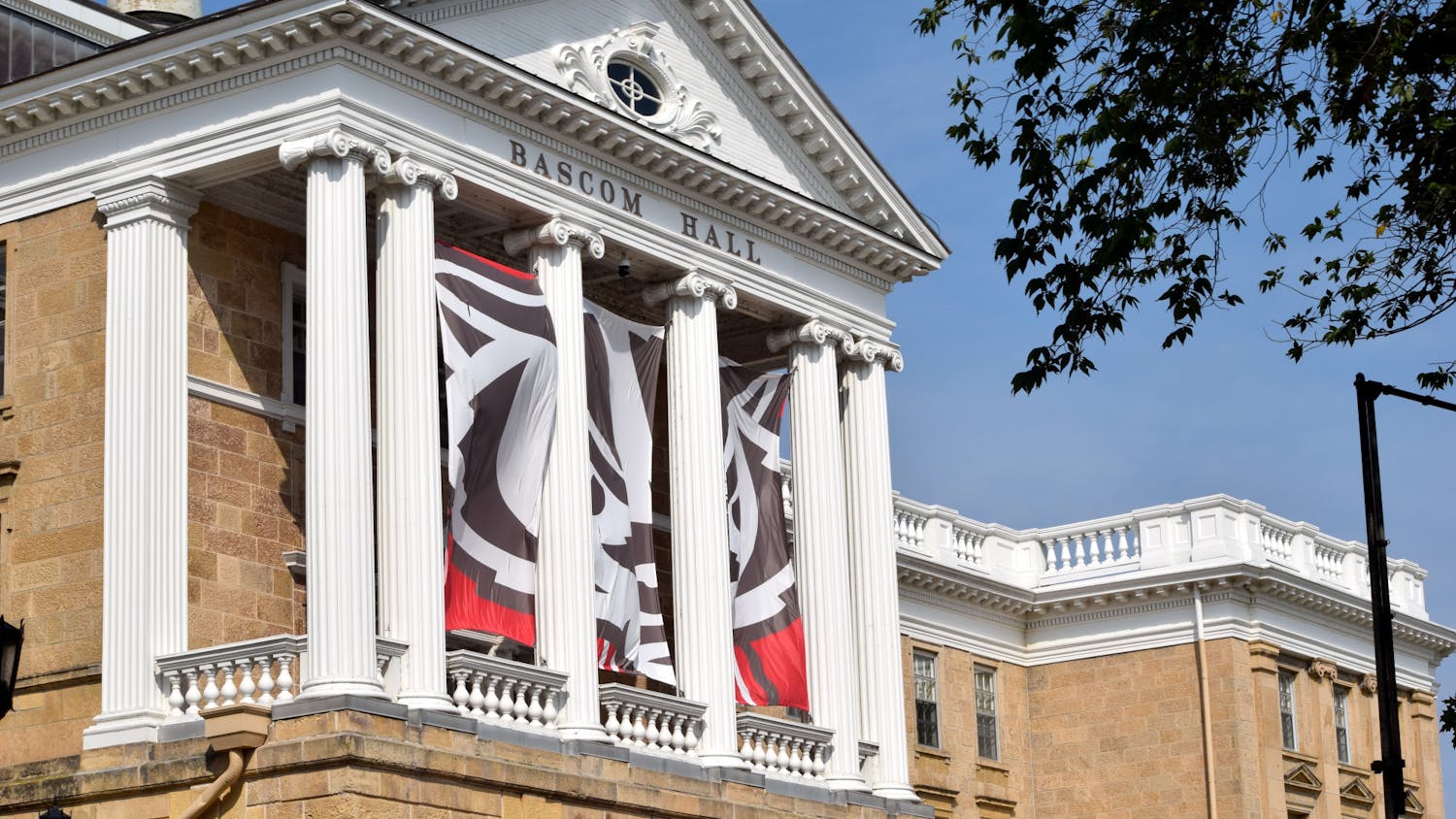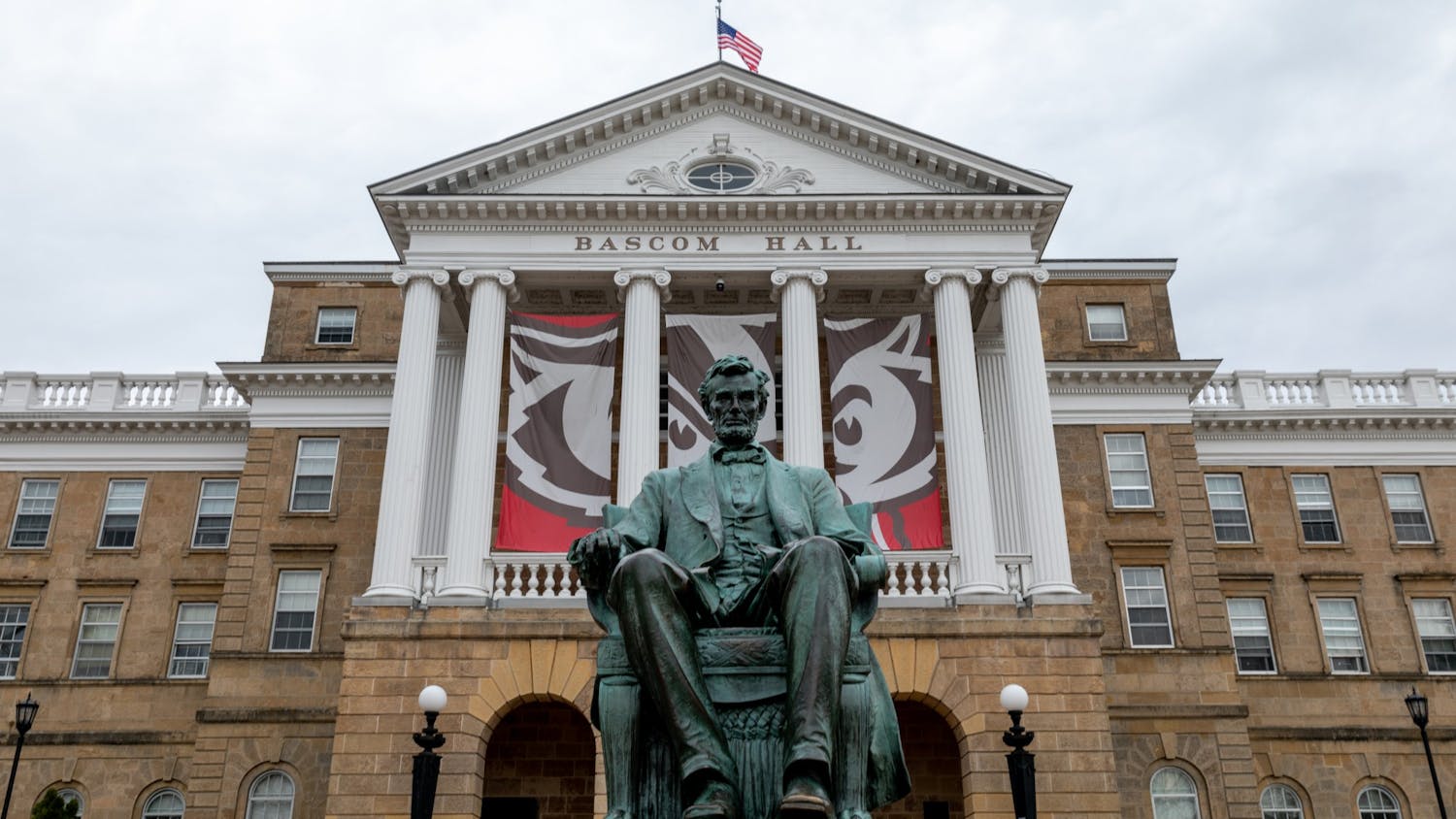From unpaid to paid labor, our lives as college students revolve around work. Working to have enough money for weekly groceries, to pay tuition, to help make ends meet at home. Working to get “experience,” to build a resume, to get that dream entry-level job after graduation. Working to keep your GPA afloat and to get through yet another week of classes and midterms.
The way labor has come to function in our society has had incredibly harmful effects, ones college students — like us at the University of Wisconsin-Madison — are acutely aware of. And so, here, we dive into facets of labor culture — parsing through the ways in which it has neglected systemic inequalities, exploited youth, perpetuated cycles of oppression and manifested in our immediate environment.
Idolizing Work
Wake up, eat breakfast and sign on to Zoom for your daily dose of online courses. Work a shift at your remote internship, attend that club meeting you missed last week, pick up an extra shift at the cafe for Saturday morning, proceed to spend the rest of your night doing problem sets, fixing that code you wrote for four hours, writing essays or doing readings. You finally go to bed, exhausted — but that's just a day in the life, right?
Call it “hustle culture” or “the American dream,” working hard — whether it’s for success, wealth or otherwise — is ingrained in the culture of this country. Even as a pandemic continued to rage on, people took to the streets to protest lockdown orders, to reopen the state and to get back to work.
Whether you’re a Fortune 500 CEO or someone holding down three full-time jobs, the hustle is respected, revered, idolized. Yet, the difference between an individual exploiting thousands of people for cheap labor and the other working 100 hours a week without a liveable wage or sufficient healthcare benefits somehow seems to go unnoticed.
Not only does this idea of constant productivity and work become detrimental to our physical and mental wellbeing, but it slyly neglects systemic economic problems. From inequalities in wealth to barriers to economic opportunity, it acts as a diversion for the wealthy to point to as real wages of the average worker stay stagnant and earnings of the top 5% rise drastically. Ultimately, this isn’t “hustle” — it’s a grim and exploitative work culture that doesn’t put life over labor.
And as students, we’re conditioned to become a part of this capitalist machine — to critique it, but participate nonetheless. So, at what point do we stop and think, “Maybe our lives shouldn’t revolve around work. Maybe I’m not a #girlboss. Maybe Elon Musk wasn’t right.”
Exploiting Youth
A way in which this capitalist system maintains oppression is through the exploitation of youth labor. The concept of an “unpaid” internship is one of the most anti-worker practices that many young people are subjected to all too often.
Unpaid internships create a cycle of oppression that hinders students from escaping their debt. As it stands, corporations encourage young folks to earn a degree and pay thousands of dollars to attend a school in order to become qualified for the jobs these corporations create. Now, this isn’t to say that education is bad — it’s not — but these corporations then create internship positions that students are meant to fill in order to be a more suitable worker for them.
The catch? Many internships do not pay students — instead they require them to spend 40 hours a week in an office over the summer with the hopes of gaining “industry experience.” However, these corporations continue to enforce a system of oppression that hinders students from marginalized communities from receiving access to better jobs.
The only students who are able to spend an entire summer working for free are students who come from an economically privileged background. Folks in marginalized communities are often unable to afford not working in order to pay rent, tuition, among other expenses.
Then, because the privileged students were able to indirectly “pay” for the experience, those candidates are perceived as more desirable to the workforce, and are in turn rewarded with better job opportunities, while students who had to work a non-internship minimum wage job to get by are further disadvantaged.
Here at UW-Madison, some students are forced to take unpaid internships for credit in order to complete their degree programs. The Criminal Justice certificate, for example, requires that students complete an internship for a semester, in which the student is not only unpaid, but they in fact must pay the University tuition to enroll in a class and earn academic credit for their internship position.
This presents a barrier for people trying to pay off student loans, as this unpaid internship experience essentially blocks students’ ability to work during the semester, since they are instead paying money to work for free at a different job. Students facing financial struggles are then unable to work since their time is occupied at their required, unpaid internship.
Ultimately, unpaid internships continue to enforce exploitative labor practices and hinder marginalized communities from equal access to job opportunities, especially to those here at UW.
Unions and UW
One of the clearest examples of these cycles of exploitation we can find on the UW-Madison campus is in the fight between university administration and the Teaching Assistants’ Association, or TAA, over the issue of segregated fees.
Some background: the TAA — the oldest graduate employee union in the country — is a group representing the best interests of the graduate students who carry this great university on their shoulders. Segregated fees are the dues each UW student must pay each semester for the maintenance of certain services, facilities and student organizations.
For graduate students employed by the university, those dues amount to handing a portion of their paycheck right back to their boss. Segregated fees amount to nearly $1,500 per academic year for graduate students — 10 percent of their annual salary. This is money that the UW claims to pay its workers, but never has to part with. This is Schrodinger’s money: it belongs at once to the worker and the university both — until you look to see who actually benefits. This is wage theft.
For years, the TAA has pushed to make grad students exempt from paying segregated fees. With the help of Scott Walker’s Act 10, the university has persevered in wholly ignoring their demands. Now, as COVID-19 has threatened the financial wellbeing of so many, a new call for the students to keep the money they earned is in the works, and The Daily Cardinal endorses it wholeheartedly.
We support the TAA’s calls for graduate students to withhold their segregated fees until their April 2 due date, and we encourage all graduate students to participate.
The university should feel that pressure. They should feel the pressure of the more than 9,000 graduate students on campus withholding that money and be confronted head-on with the fact that an organized workforce has the right and the means to make demands of them. And if need be, they should see how the university would struggle to hold itself together without the labor of graduate students.
TAs are the backbone of UW-Madison. Give them a fair shake.






